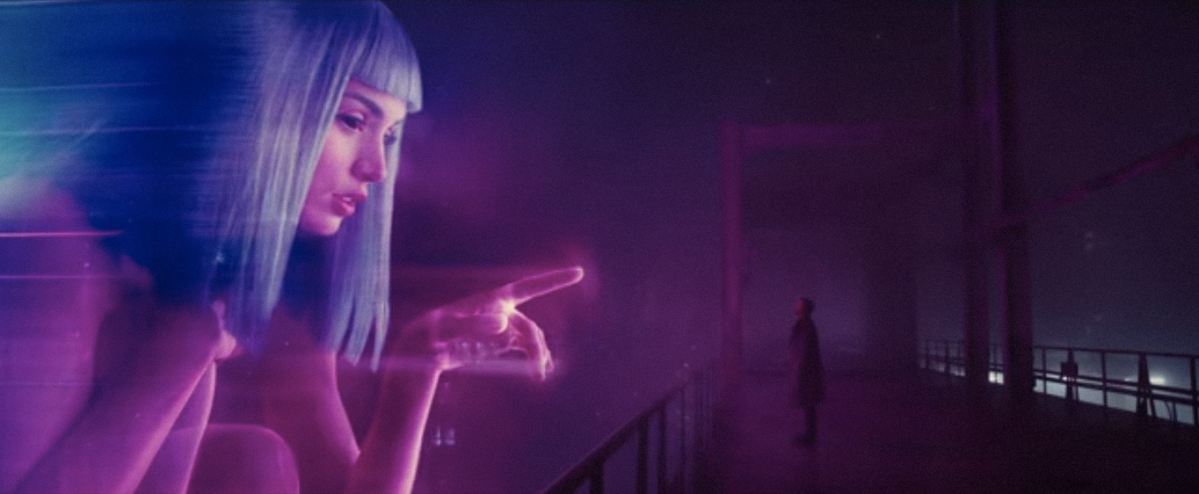In a recent interview with Vanity Fair, Blade Runner 2049 director Denis Villeneuve addressed some of the criticisms of sexism in his movie. Interviewer Jordan Hoffman pointed out that many critics had accused the movie of portraying a world that was “hostile to women.” And indeed, here at TMS, we posted our own piece about the movie’s portrayal of women from contributor Lauren Jernigan.
Villeneuve responded to the question by saying, “I am very sensitive to how I portray women in movies. This is my ninth feature film and six of them have women in the lead role. The first Blade Runner was quite rough on the women; something about the film noir aesthetic. But I tried to bring depth to all the characters. For Joi, the holographic character, you see how she evolves. It’s interesting, I think.”
He further argued that “cinema is a mirror on society,” and as such, “Blade Runner is not about tomorrow; it’s about today. And I’m sorry, but the world is not kind on women.”
He continued: “There’s a sense in American cinema: you want to portray an ideal world. You want to portray a utopia. That’s good—dreams for a better world, to advocate for something better, yes. But if you look at my movies, they are exploring today’s shadows. The first Blade Runner is the biggest dystopian statement of the last half century. I did the follow-up to that, so yes, it’s a dystopian vision of today. Which magnifies all the faults. That’s what I’ll say about that.”
Now, Villeneuve has a point. The world of Blade Runner 2049 is a dystopia built on the idea that our current capitalist patriarchy follows its own logic into a despairing and destructive future. As such, this world should be misogynist, because Lord knows our present world is. However, I think Villeneuve is deliberately misunderstanding some elements of the criticism here – and to be fair, Hoffman is letting him off easy with the framing of the question.
Critics didn’t just complain about the trappings of the world – though, let’s be real, this was a shockingly white world for a movie set in the Los Angeles of the future, and as such, completely failed to provide a “mirror” for what is currently a very diverse city in a very diverse country. And so I do think the excuse of showing the world as it is falls flat when you’re weirdly removing all the people of color from your future. That’s not what our society looks like, dude.
That said, it’s still true that criticisms of Blade Runner 2049 weren’t limited to the setting. They also extended to the arcs for the female characters. Women characters who live in a sexist world do not have to be written as sexist stereotypes themselves. Hell, we currently live in a sexist society, and yet dozens of TV shows manage to write complex women with agency and desires. And so, while I think it is acceptable and even arguably necessary to represent our world’s oppression of women onscreen, it’s just as crucial to remember: portrayal is not critique. Including an element is not the same as holding it up for criticism, and what I believe most critics of Blade Runner 2049 were pointing out is how little it pushes back against the misogyny of its setting.
I appreciate that Villeneuve does think about the portrayal of women, and I certainly don’t think that he can’t make movies about women. (After all, Arrival offered a beautiful, moving portrayal of a woman scientist, and Robin Wright’s Lieutenant Joshi is a plenty rounded character in Blade Runner 2049.) Instead, I think his thinking here reveals the way that privilege can stunt your imagination. He clearly had trouble imagining what it might be like to be a woman when the world’s treatment of you does not correspond to your own understanding of yourself. When he pictures a future where the world sees some women as exploitable sex objects meant to serve, he cannot imagine that the women treated that way might not agree. Both Joi and Luv evolve, yes, but never in ways that challenge an understanding of themselves as tied to and in service of male needs. And that, ultimately, is what I think bothered people about Blade Runner 2049.
I’m hopeful that Villeneuve’s next project will avoid this misstep, as many of his previous efforts have. But I think that’ll only happen if he learns the right lesson from this one.
(Via io9 and Vanity Fair; image via Warner Bros.)
Want more stories like this? Become a subscriber and support the site!
—The Mary Sue has a strict comment policy that forbids, but is not limited to, personal insults toward anyone, hate speech, and trolling.—









Published: Nov 26, 2017 04:00 pm